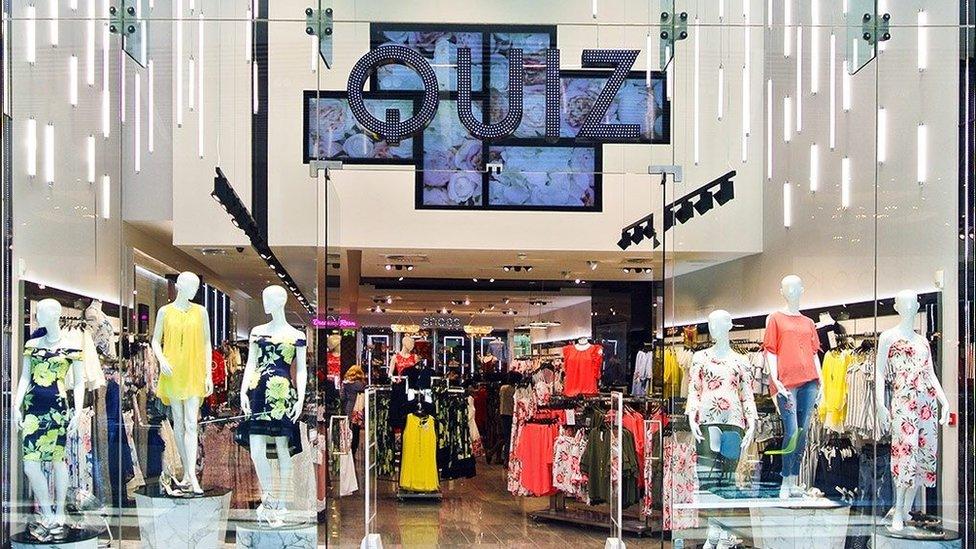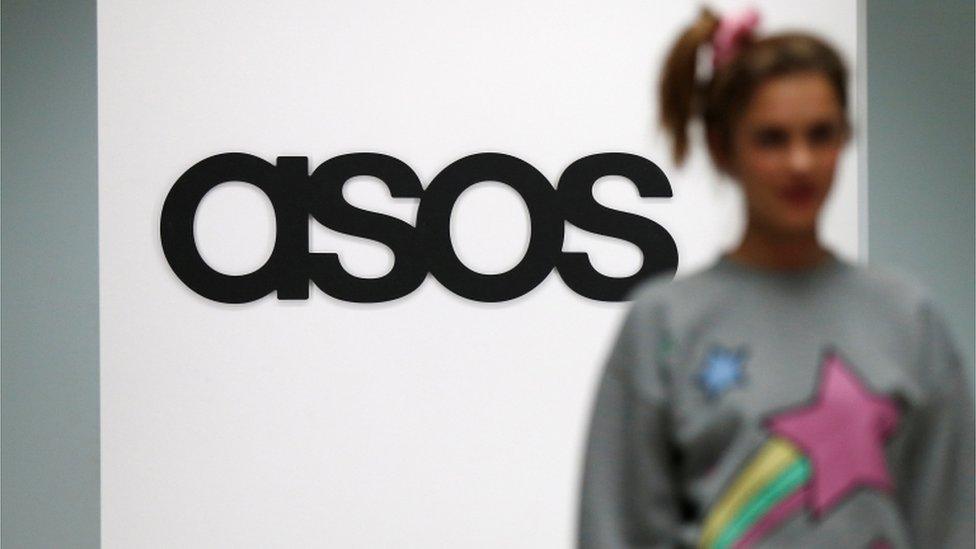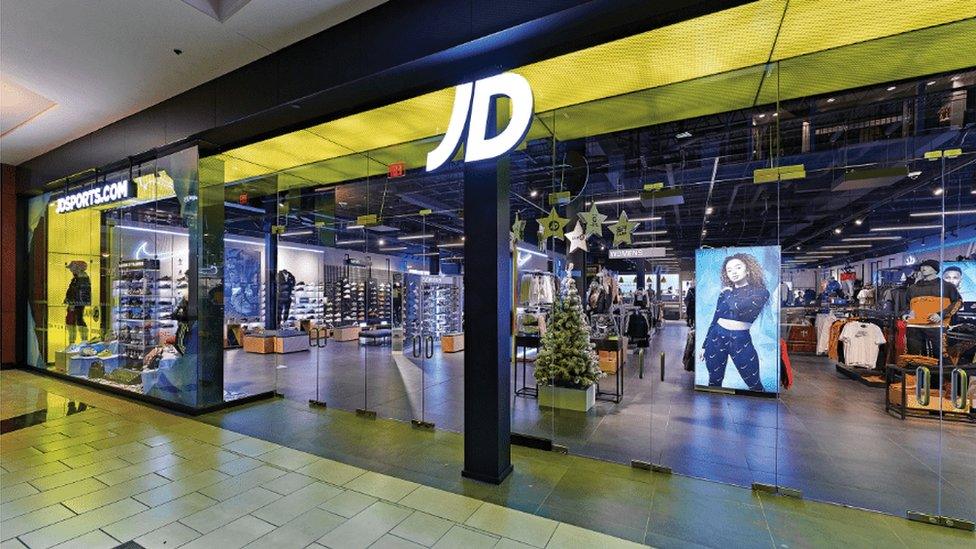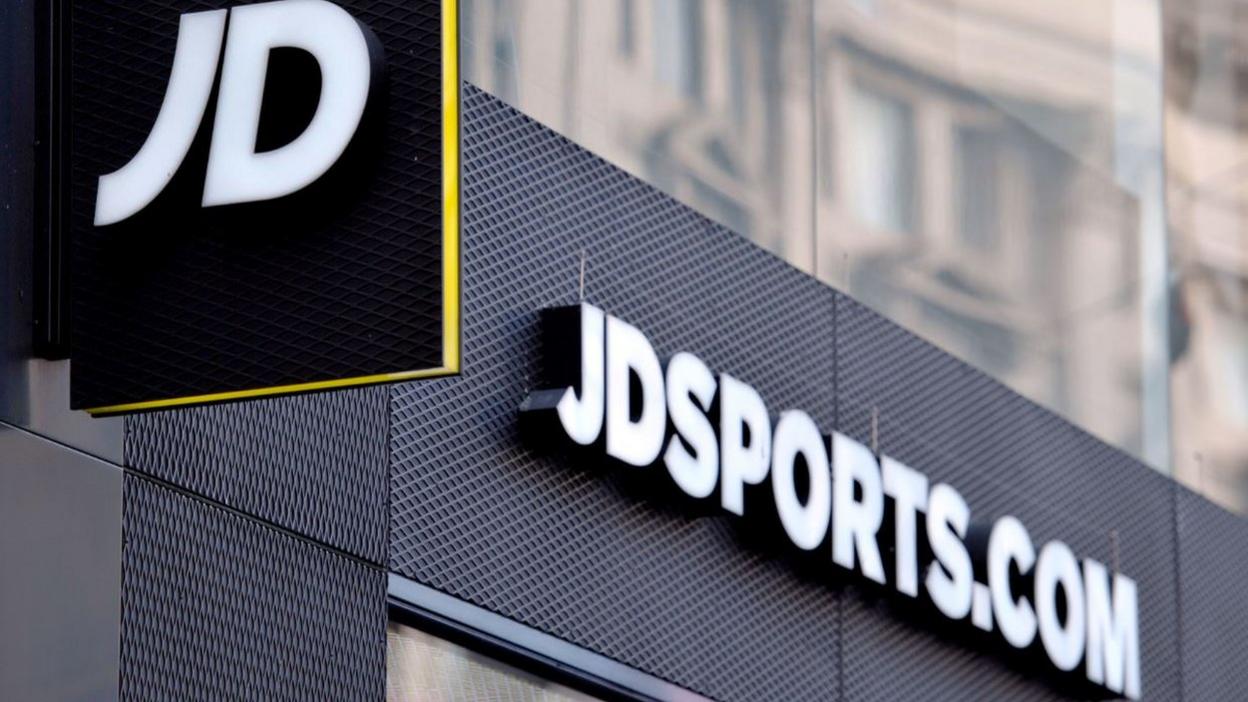Going out, dressing up
- Published

Glasgow-based Quiz reported a sharp fall in revenue in the year to March
There are contrasting fortunes in the business of fashion and apparel. There's not been much call for occasion wear to "stand out from the crowd" when there haven't been occasions or crowds.
Retailers are pinning their hems and hopes on a return to partying when people are allowed to.
Among those to have done well out of the pandemic have been those selling sports gear - less so, if like Mike Ashley, they bought a large chain of department stores as well.
If you had to choose a segment of the fashion retail market to avoid during a pandemic, you probably wouldn't choose to "specialise in occasion wear, evening wear and dressy casualwear" helping "fashion-forward females to look glamorous and stand out from the crowd".
No crowds, no occasions and "fashion-forward females" are more likely to be on Zoom in their pyjamas or out running in fashion-forward Lycra.
So it's bad luck for Glasgow-based Quiz, which describes itself thus, and good news for JD Sports - both companies updating the market on the state of business this Tuesday, with contrasting tales.
For Quiz, owned and run by apparel veteran Tarak Ramzan, revenue fell from £118m to less than £40m in the year to March.
The pivot to online that has worked for some other retailers could only go so far when the product was for partying. Online sales were down by 42% to £22m, now representing more than half of revenue.
Stores and concessions were down from nearly £60m to just £10m. It doesn't help that it has concessions in 72 Debenhams stores, delivering sales over the past year of less than £4m.
They have reopened in England and Wales for stock clearance sales, due to end by 15 May. Debenhams in Scotland isn't even going to bother reopening.

But Quiz claims it can take the Debenhams demise in its stride, and bounce back into post-pandemic occasions. It has reopened its 36 English and Welsh stores and has yet to reopen the 19 in Scotland and nine across the island of Ireland.
'Bursting with tiered dresses'
Marks & Spencer - no stranger to difficulty in the changing rooms - is also betting its summer range on a desire to dress up and celebrate a bit of hard-won freedom.
"Lots of customers are excited about dressing up for picnics and alfresco dining with friends and families," it reported to shareholders last week. "Stores will be bursting with tiered dresses, pretty tops and new seasonal denim". Meanwhile "loungewear staples get a colour refresh".
Sure enough, there was something of a stampede back into shops when they opened in England and Wales this week. Fear of infection didn't seem to be constraining the desire to get back to the display racks, and less still to the pub for an outdoor drink.
Asos, meanwhile, has the clothes range, online clout and distribution figured out to deliver some impressive numbers this month.

Its fashion wares are aimed at 20-somethings, with nearly eight million UK customers, an average basket of £73 and average item at £23.
Sales from September to February were up 24% to nearly £2bn. Pre-tax profit was up from £30m to £106m.
It, too, is preparing for a return from casual to occasion wear.
That's while rival Boohoo announced on Tuesday it has bought a new headquarters in central London, where 600 staff will absorb the portfolio of brands it just bought from the administrators of Arcadia.
The risk for such disruptive digital newcomers is when they go all mainstream and top heavy.
JD Sports may be wondering if a return to party gear means a dent in the growth of its sportswear. Probably not, as Americans cash in Joe Biden's stimulus cheques and run out its stores with shiny new stuff.
With a big footprint on the other side of the Atlantic, JD Sports results for the year to end-January saw sales increase slightly to £6,167m. Pre-tax profits slipped from £348m to £324m. Not a bad outcome in the circumstances.

Executive chairman Peter Cowgill claims the firm has the "necessary agility to progress in an environment where the retailing of international brands may see permanent global structural change".
It seems Britain may be on the wrong end of that global change as it loses out on distribution jobs post-Brexit, to both Belgium and Ireland. So much for being "tariff- free".
Contrast that with its rival in British shopping centres for selling sports gear, Sports Direct.
Rebranded as Frasers, boss Mike Ashley has taken repeated punts on other British high street chains as they succumbed to the administrators, complaining this week that he was kept out of the fight to save Peacocks.
Ashley's main punt was on House of Fraser stores, three years ago, followed by robust negotiations with commercial landlords. Nearly a quarter of its 59 stores aren't reopening.
Mr Ashley had to concede that the February estimate of a £100m cut to the value of his firm's assets now looks conservative.
Only two months on, and it has become £200m.
- Published13 April 2021

- Published8 April 2021
